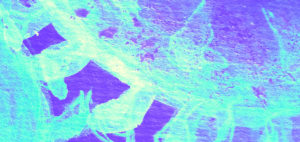Alcohol and Sleep

Sleep is one of the most important factors in achieving a healthy lifestyle and an ideal weight. If you sleep poorly or not enough, you will produce more of the hormone ghrelin (also known as the appetite-regulating hormone or growth hormone secretagogue ormotilin-related peptide), which is secreted when you’re hungry and decreases when you’re satiated. It is considered the counterpart of the hormone leptin, produced by adipose tissue, which induces satiation when present at higher levels.
 In other words, if you don’t get a good night’s sleep, you will likely eat more the next day because you’ll feel hungrier whether or not your really are. “We found that the metabolic and endocrine changes resulting from a significant sleep debt mimic many of the hallmarks of aging,” said Eve Van Cauter, Research Professor in Medicine and director of a study on the effects of sleep loss.
In other words, if you don’t get a good night’s sleep, you will likely eat more the next day because you’ll feel hungrier whether or not your really are. “We found that the metabolic and endocrine changes resulting from a significant sleep debt mimic many of the hallmarks of aging,” said Eve Van Cauter, Research Professor in Medicine and director of a study on the effects of sleep loss.
So, it’s vital to get a good night’s sleep. But how can you do that? You can’t just wish it to happen.
You can appropriate your diet in the way our ancestors did, snacking on low-sugar, high-fiber foods throughout the day and gorging on a high-protein meal after exercise and before sleep. The large meal will draw energy from other bodily functions, making you tired, and the high levels of tryptophan in protein will induce sleep as well.
Another way to emulate our ancestors is to avoid alcohol before sleep. While the drug is a depressant and may make you sleepy, it affects sleep negatively, reducing REM sleep and increasing non-REM sleep.
Dr. Karl Doghramji from Medscape Says:
However, alcohol is metabolized rapidly and blood concentrations are negligible by the middle of the night for most individuals who have a few drinks prior to bedtime, often resulting in withdrawal symptoms thereafter. These may include shallow sleep and multiple awakenings, REM rebound associated with nightmares or vivid dreams, sweating, and general activation.[2,3] Therefore, although alcohol may be effective in sleep induction, it impairs sleep during the second half of the night and can lead to a reduction in overall sleep time. As a result, it can also be associated with daytime somnolence. It is of interest that alcohol’s negative effects on sleep are even observed when it is ingested in the late afternoon.
While alcohol can be found in nature and it can be assumed that Natural Man partook in some forms of inebriation in some wild caveman nights, it’s highly unlikely that a few drinks before bedtime was a regular habit. We recommend staying away from anything more than a glass of wine at least a few hours before sleep to help improve your slumber and overall health.





